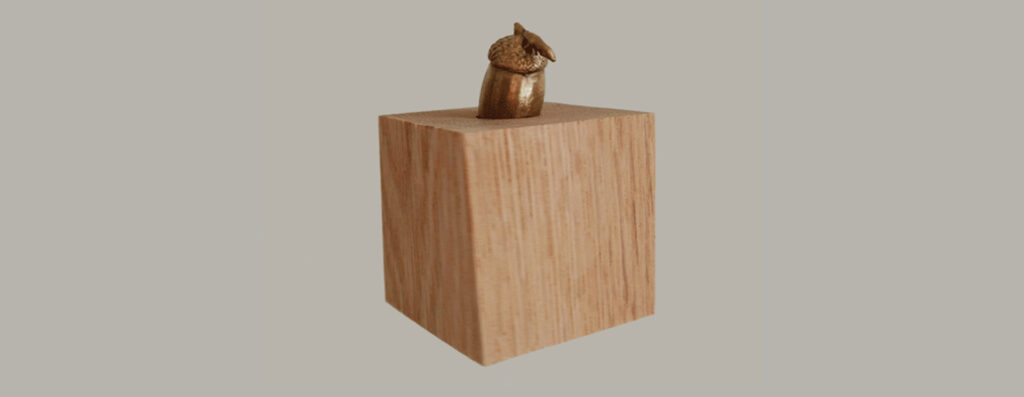Presenting another take on WHAM’s opening keynote about AI and creativity, artist Benedict Davies considers the impact of AI on the creative professions. While hype around AI might predict the future redundancy of human creativity, Marcel Duchamp’s revolutionary ‘The Creative Act’ suggests otherwise.
In 1957, the pioneering artist advocated that “the creative act is not performed by the artist alone and that the spectator brings the work in contact with the external world by deciphering and interpreting its inner qualifications.” In short, the spectator plays a vital role in contributing to the creative act.
On the face of it, Artificial Intelligence is defined by its lack of authenticity. It’s rational and not impulsive, rigid and not unconstrained, directional and not meandering, and structured, not serendipitous.
Benedict’s personal work, ‘Acorn 23: A Creative Act’ demonstrated that art does not exist in a vacuum. With a quirky, nonconformist approach, Acorn 23 showed that the authentic creative process is a living, breathing, changing and integral part of culture. And while it can be completed, it’s also often ‘unfinished’.
To what extent will AI enhance – or sideline – the foundational creative process itself remains to be seen but perhaps, as Duchamp posits, “there is no solution because there is no problem.”
